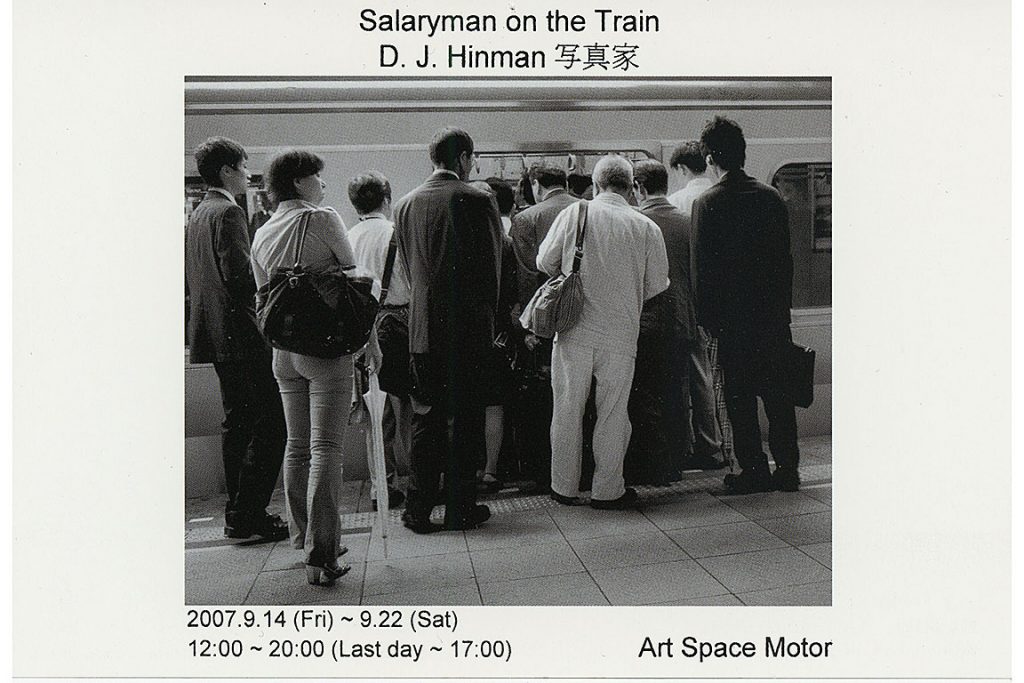
“This is Japan. Everything is different,” a colleague advised me when I first moved to Japan three years ago. “Don’t ask why, it just is.” After the first year, I exhibited some of my photographs. One observer commented, “These are interesting photographs but they are not typical Japan.” This comment set me wondering what is typical Japan.
My salaryman series began in 2004. When I first suggested photographing salarymen in Tokyo, a Japanese colleague responded in disbelief, “Why salaryman?” Salaryman is such a common experience for Japanese, why would I find it an interesting subject? The answer, like the question, surprised me.
As a Westerner, I had an image of the Japanese salaryman – a middle-aged man, dressed in a standard dark suit, white shirt and dark tie, working long hours at a desk, year in and year out for a lifetime – a stereotype promoted by the media. Was this true?
I began a dialogue with Japanese colleagues and friends: What is a salaryman? Who is a salaryman? Where will I find a salaryman? Opinions varied widely. Older generation salarymen are different from younger ones. Are there women “salarymen”? Are there salarymen in the U.S.?
These opinions came together when a Japanese colleague replied, “Salaryman means community. Many Japanese form a bond with people from the office. It extends to our lives outside of work, too.”
So, my camera and I began searching for a salaryman. For me, photography is a way of discovery, a visual diary. Usually, I set out with a vague idea, and then follow my camera. I believe that my camera has a mind of its own, I just follow where it leads.
At first, I had difficulty finding salarymen. Now that seems strange to say, but at that time it was true. Then, two Japanese colleagues took me to an izakaya restaurant in Shimbashi, a neighborhood known for crowds of salarymen. Where were the salarymen? My friend replied, “Don’t you see them?” No, I admitted I did not. “I am a salaryman,” my friend said, grinning, “and you are, too.”
Trains play a big role in the life of a salaryman: going to work during rush hour, going with fellow salarymen to a bar after work, rushing to catch the last train home after spending an evening of drinking and karaoke with them. And some times they stay out all night waiting for the first train home on Saturday morning. Many of the images in this series are about the salaryman’s life on the train.
Visit the gallery Japan: Salaryman.